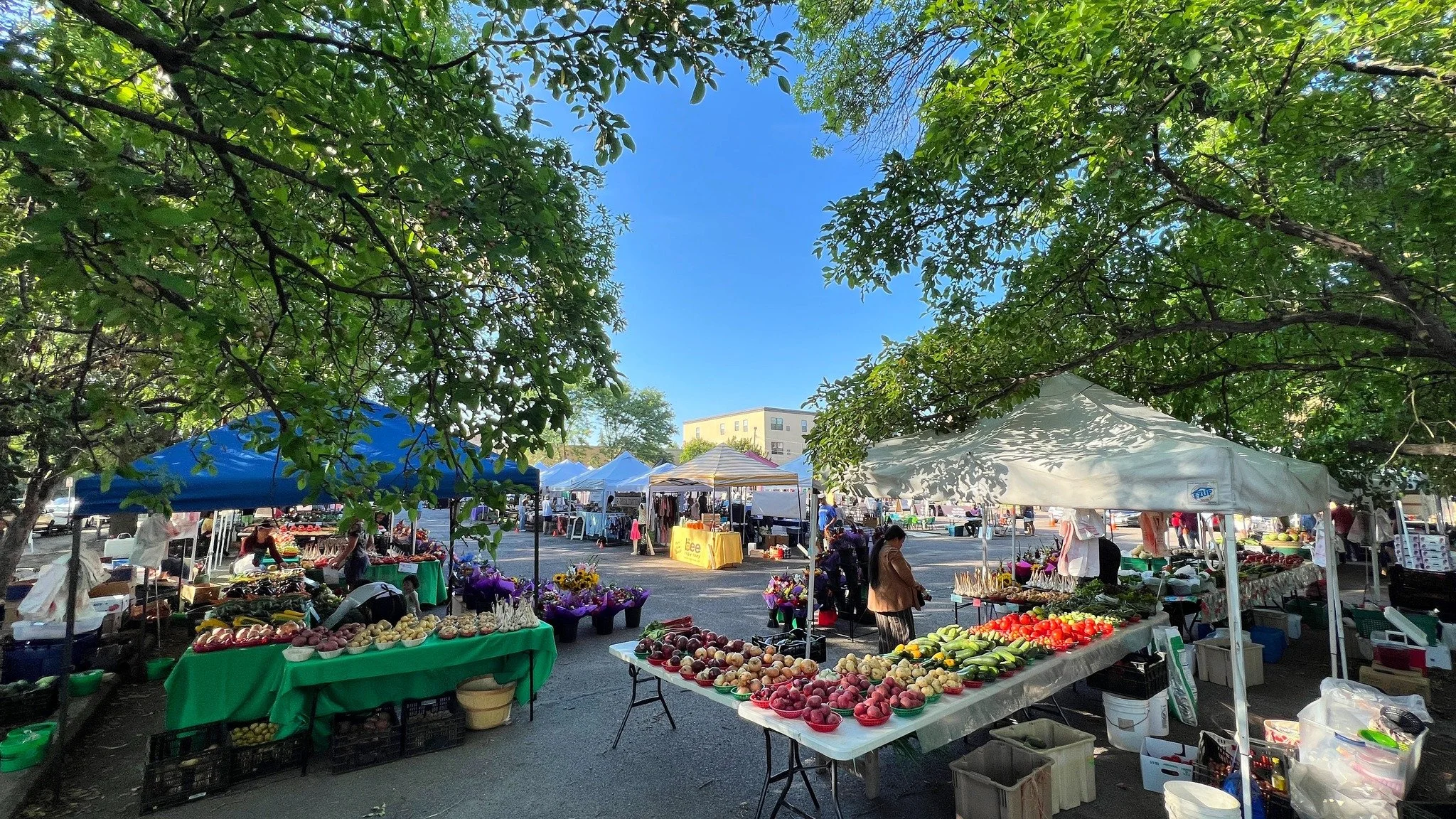Seedlings
Eastside Food Co-op’s Seedlings program makes it simple for shoppers to support organizations making a positive impact in our community! Shoppers make small donations at the register which add up to meaningful contributions to nonprofit organizations whose work aligns with our store’s mission.
2026 Seedings Applications Are Now Open!
To apply, you can either:
Download and complete the Seedlings Candidate Application, then email it to info@eastsidefood.coop.
Download and print the Seedlings Candidate Application, complete it, and turn it in to Customer Service
Fill out our online form here.
Please reach out to info@eastsidefood.coop if you have any questions.
2025 Seedling Recipients
JANUARY
Agate Housing
-
Agate is a “Housing First, Harm Reduction” agency with a mission to end homelessness and relieve hunger through action and advocacy. Agate is committed to making a difference in our community by helping people live their best lives on their own terms. We prioritize centering the voices and life experiences of people affected by homelessness by recruiting and hiring individuals who have personally experienced poverty and homelessness.
FEBRUARY
Dream of Wild Health
-
Dream of Wild Health is one of the longest continually operating Native American organizations in the Twin Cities. We have grown into a 30-acre organic farm, native fruit orchard, and pollinator meadow in Hugo, Minnesota, with an office in the American Indian cultural corridor in Minneapolis. Our mission is to restore health and well-being in the Native community by recovering knowledge of and access to healthy indigenous foods, medicines, and lifeways.
MARCH
Little Kitchen Food Shelf
-
Little Kitchen Food Shelf is an emergency food shelf in NE Minneapolis that removes zip code and income limits so that we can serve ALL who come to our doors, including our clients' companion animals. We prioritize stocking our shelves with fresh produce grown on-site at Grace Gardens and through partnerships with Twin Cities Food Justice and local gardeners. We also partner with many other organizations to expand our reach in the community beyond our doors!
APRIL
Northeast Farmers Market
-
The Northeast Farmers Market (NEFM) is dedicated to enhancing the Minneapolis community with a vibrant and accessible market experience. Our mission is to provide quality products at affordable prices while fostering sustainability and community engagement in Northeast Minneapolis. NEFM is also a welcoming gathering place that enhances neighborhood livability. We prioritize reflecting the diversity of our community by offering a variety of local and organic food options that cater to all ages, backgrounds, and economic statuses.
MAY
Tree Trust
-
SACA is a food shelf and thrift store located in Columbia Heights, less than two miles north of Eastside Food Co-op. Our mission is to provide food and resources to those in need while empowering dignity and independence to those we serve through our client-choice food shelf, grocery delivery service, and thrift store. SACA has served Columbia Heights and surrounding communities for almost 50 years. SACA distributes over 950,000 pounds of food each year.
JUNE
SACA Foodshelf & Thrift Store
-
Tree Trust transforms lives and landscapes in the Twin Cities through environmental education, tree planting, and paid workforce training for young people. We partner with volunteers to add trees to our urban forest so all community members can enjoy shade, clean air, and outdoor green spaces. We provide workforce training to help local young people develop practical job skills while earning a paycheck and contributing to the community through environmental projects.
JULY
Eastside Meals on Wheels
-
Eastside Meals on Wheels provides nutritious meals to seniors 60 years of age and older who cannot prepare their own adequate meals. Our services allow individuals to remain in their homes longer without the significant cost of nursing home care. Seniors who struggle with bills will cut back on medication, food, and utilities. We defray some of the cost of their basic needs.
AUGUST
Every Meal
-
Every Meal is on a mission to fight child hunger. We focus our efforts on filling the food gaps children face when they’re not able to access school meal programs. Through our multiple food gap programs, we provide children and families experiencing food insecurity with access to “good food” that is nutritious, delicious, and relevant in more than 435 schools throughout Minnesota.
SEPTEMBER
TC Food Justice
-
TC Food Justice is a volunteer-driven nonprofit organization working to reduce food waste and hunger by redistributing fresh, unsalable food to hunger relief organizations and food-insecure populations. Since 2016, TCFJ has rescued almost 1 million pounds of high-quality food, keeping it out of landfills and reducing food waste and the resulting greenhouse gas emissions. We’ve delivered this food to 35 food relief organizations in the neighborhoods served by Eastside Food Co-op, directly serving food-insecure individuals and families throughout the Twin Cities.
OCTOBER
Eastside Food Co-op Community Fund
-
Our Cooperative Community Fund is an endowment (similar to a scholarship fund) that is administered through Twin Pines Cooperative Foundation (a 501c3 non-profit organization), which makes donations to our community fund tax deductible. As we put more money in this fund, we accrue more interest. We use the interest gained each year to support organizations working in the food access, agriculture and environmental sectors.
The Eastside Food Co-op Cooperative Community Fund endowment is pooled by Twin Pines Cooperative Foundation with over 40 other food co-op community funds. Twin Pines invests in co-op development organizations. These groups have in turn lent these funds to over 30 US food co-ops. These hard-working funds leverage over $40 million for the development and growth of fellow food co-ops.
NOVEMBER
Division of Indian Work
-
The Division of Indian Work (DIW) has been a key contributor to the Native community for over 70 years. Our mission is to support and strengthen urban American Indian people through culturally based education, traditional healing approaches, and leadership development. We achieve this by focusing on community and delivering programs and services directly or in partnership with other organizations. We envision American Indian communities that build upon inherent strengths and create safe, healthy, and nurturing environments where everyone thrives.
DECEMBER
Kilimo
-
Kilimo Minnesota is an organic incubator farm with a mission to socially and economically empower emerging farmers of African descent. Kilimo is a space for healing, learning, and building community for black farmers in Minnesota. Participants gain access to farm facilities, sales aggregation services, and mentorship, preparing them to purchase their own regenerative farms upon completing the program. With 35 registered farmers in 2024, predominantly Black immigrants and women, Kilimo members are active leaders in the agricultural community.
Monthly Seedlings Donations
2025
January Agate Housing & Services $1,080.57 raised
February Dream of Wild Health $1075.37 raised
March Little Kitchen Food Shelf $8,866.27 raised
April Northeast Farmers Market $1,207.93 raised
May Tree Trust $1,220.53 raised
June SACA Food Shelf & Thrift Store
August Every Meal
September TC Food Justice
October Eastside Food Co-op Cooperative Community Fund
November Division of Indian Work
December Kilimo
2024
January Eastside Meals on Wheels $1,474.21 raised
February Northeast Farmers Market $1,192.75 raised
March Little Kitchen Food Shelf $7,662.83 raised
April TC Food Justice $1,270.00 raised
May The Good Acre $1,134.26 raised
June Dream of Wild Health $1,077.17 raised
July Appetite for Change $990.75 raised
August Midwest Food Connection $1,079.35 raised
September Tamales y Bicicletas $1,066.15 raised
October Eastside Food Co-op Cooperative Community Fund $984.85 raised
November Division of Indian Work $1,054.24 raised
December Sister’s Camelot $1,002.87 raised














